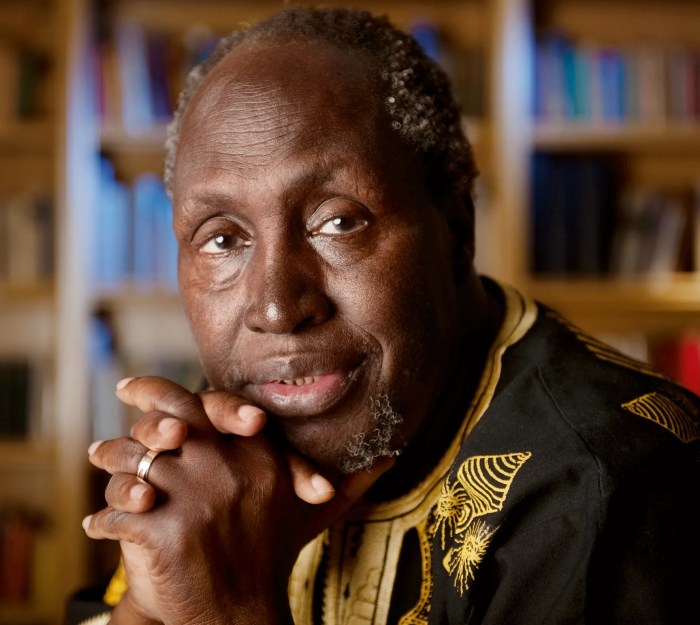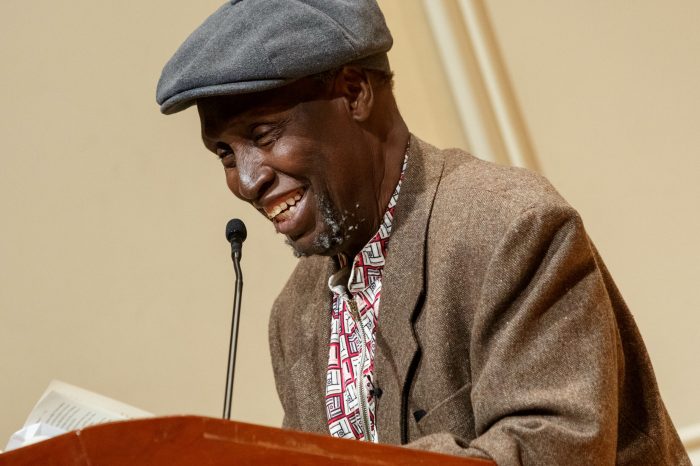The return by ngugi wa thiong’o summary – The Return by Ngugi wa Thiong’o, a seminal work in African literature, delves into the complexities of colonialism, identity, and betrayal, offering a poignant exploration of Kenya’s tumultuous past.
This captivating novel unveils a narrative rich in historical context, intricate characters, and profound themes, promising an unforgettable literary experience.
Historical Context

Ngugi wa Thiong’o’s “The Return” is set against the backdrop of the Mau Mau uprising, a rebellion against British colonial rule in Kenya that lasted from 1952 to 1960. The novel explores the impact of the uprising on individuals and communities, and the lasting legacy of colonialism on Kenyan society.
Characters and Relationships
| Character | Relationship | Motivations |
|---|---|---|
| Waiyaki | Central protagonist | To reclaim his land and fight for his people’s freedom |
| Nyambura | Waiyaki’s wife | To support her husband and raise their family |
| Thuku | Waiyaki’s friend and fellow freedom fighter | To fight for Kenya’s independence |
| Kariuki | Waiyaki’s brother | To work within the system to improve the lives of Kenyans |
| Mugo | Waiyaki’s father | To protect his family and preserve their land |
Themes and Symbolism
- Colonialism:The novel exposes the oppressive nature of British colonial rule and its impact on the Kenyan people.
- Identity:Waiyaki’s journey represents the struggle of Kenyans to define their identity in the wake of colonialism.
- Betrayal:The novel explores the betrayal of the Kenyan people by their own leaders and the consequences of such betrayal.
Symbolism:Ngugi wa Thiong’o uses symbolism throughout the novel to enhance the understanding of these themes. For example, the land represents the Kenyan people’s connection to their homeland and their struggle for freedom.
Literary Style and Techniques

Ngugi wa Thiong’o’s unique literary style in “The Return” is characterized by the use of:
- Gikuyu language:The use of Gikuyu language connects the novel to the Kenyan people and their culture.
- Oral storytelling techniques:Ngugi wa Thiong’o employs oral storytelling techniques to give the novel a sense of authenticity and immediacy.
Cultural and Political Significance
“The Return” has had a profound impact on Kenyan and African literature. It is considered a seminal work in postcolonial literature and has inspired other writers to explore the themes of colonialism, identity, and freedom.
The novel also contains a strong political message. It criticizes the corruption and oppression that has plagued Kenya and many other African nations.
Critical Reception and Legacy

“The Return” was critically acclaimed upon its publication and has continued to receive positive reviews. It has been translated into over 30 languages and has been studied by scholars worldwide.
The novel has influenced other writers and contributed to the development of postcolonial literature. It remains a powerful and relevant work that speaks to the struggles of people around the world.
Query Resolution: The Return By Ngugi Wa Thiong’o Summary
What is the central conflict in The Return?
The novel explores the internal and external conflicts faced by Kenyans during and after the Mau Mau uprising, as they grapple with issues of identity, loyalty, and the legacy of colonialism.
How does Ngugi wa Thiong’o use language in The Return?
Thiong’o employs a unique blend of Gikuyu and English, reflecting the linguistic and cultural diversity of Kenya and highlighting the importance of preserving indigenous languages.
What is the significance of the Mau Mau uprising in the novel?
The Mau Mau uprising serves as a backdrop for the novel, shaping the characters’ experiences and motivations, and exploring the complex political and social dynamics of Kenya’s colonial era.